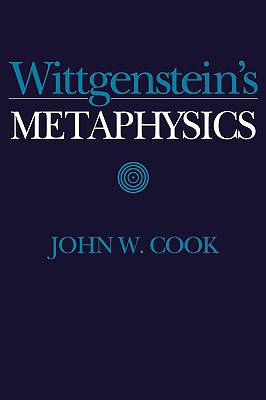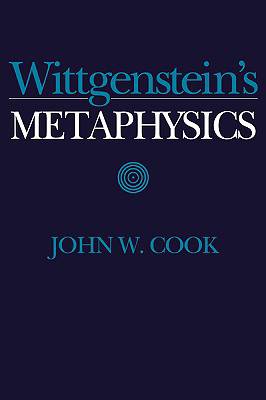
- Afhalen na 1 uur in een winkel met voorraad
- Gratis thuislevering in België vanaf € 30
- Ruim aanbod met 7 miljoen producten
- Afhalen na 1 uur in een winkel met voorraad
- Gratis thuislevering in België vanaf € 30
- Ruim aanbod met 7 miljoen producten
Zoeken
Omschrijving
Wittgenstein's Metaphysics offers a radical new interpretation of the fundamental ideas of Ludwig Wittgenstein. It takes issue with the conventional view that after 1930 Wittgenstein rejected the philosophy of the Tractatus and developed a wholly new conception of philosophy. By tracing the evolution of Wittgenstein's ideas, Cook shows that they are neither as original nor as difficult as is often supposed. Wittgenstein was essentially an empiricist, and the difference between his early views (as set forth in the Tractatus) and the later views (as expounded in the Philosophical Investigations) lies chiefly in the fact that after 1930 he replaced his early version of reductionism with a subtler version. So he ended where he began, as an empiricist armed with a theory of meaning. This iconoclastic interpretation is sure to influence all future study of Wittgenstein and will provoke a reassessment of the nature of his contribution to philosophy.
Specificaties
Betrokkenen
- Auteur(s):
- Uitgeverij:
Inhoud
- Aantal bladzijden:
- 380
- Taal:
- Engels
Eigenschappen
- Productcode (EAN):
- 9780521460194
- Verschijningsdatum:
- 28/01/1994
- Uitvoering:
- Hardcover
- Formaat:
- Genaaid
- Afmetingen:
- 152 mm x 229 mm
- Gewicht:
- 725 g

Alleen bij Standaard Boekhandel
+ 389 punten op je klantenkaart van Standaard Boekhandel
Beoordelingen
We publiceren alleen reviews die voldoen aan de voorwaarden voor reviews. Bekijk onze voorwaarden voor reviews.











